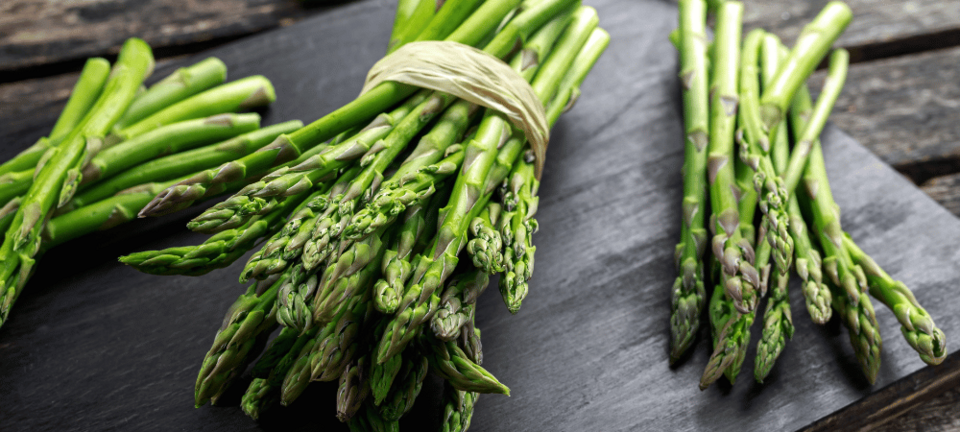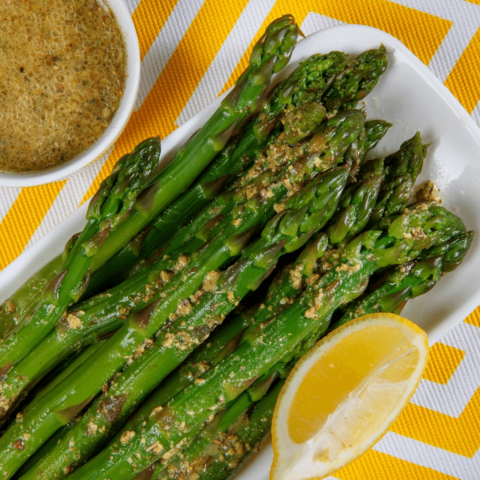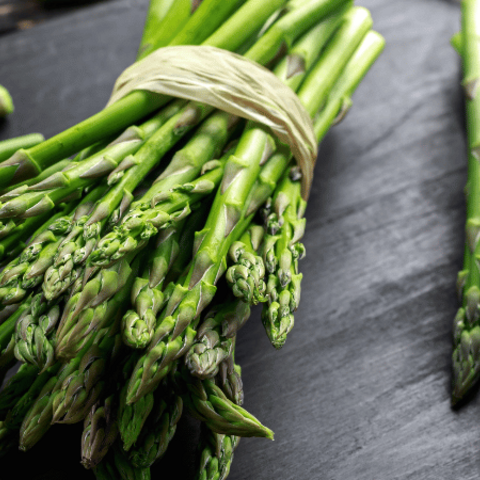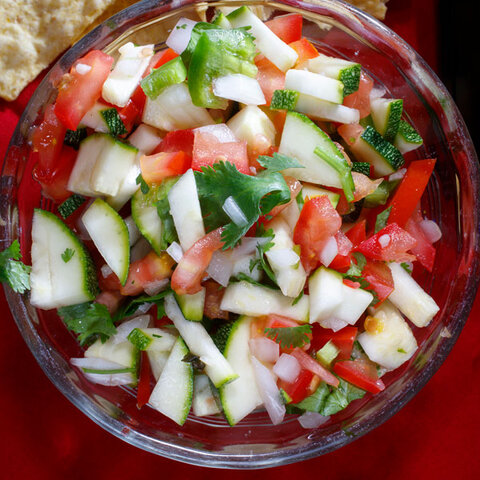
Asparagus is good steamed, roasted, stir-fried or cooked in the microwave. It can be used in salads, pasta dishes, stir fries, soups or eaten raw with your favorite dip. Most asparagus is green to purplish, but there are variations that are purple and white.
Nutrition and Health Benefits of Asparagus
Asparagus is a good source of fiber which can help lower cholesterol levels and may lower risk of heart disease. Fiber is also important for proper bowel function and helps reduce constipation. It also provides a feeling of fullness with fewer calories. Asparagus also has vitamin A for eye health and vitamin C for wound healing.
How to Select Asparagus
Avoid limp or wilted stalks. Choose odorless asparagus with tips that are dry, compact and closed. Choose thinner asparagus if you prefer more tender stalks.
How to Store Asparagus
Store unwashed asparagus by wrapping the cut ends of the stalks in a wet paper towel and placing them in a plastic bag. Store in the refrigerator for up to four days.
How to Prepare Asparagus
- Make an omelet with asparagus, feta cheese and cherry tomatoes
- Add asparagus to soup, salad or pasta
- Make a quick and tasty snack by spreading soft cheese on a whole grain cracker and top with a piece of asparagus
- Coat asparagus with olive oil and saute, grill, broil, or air fry for 5-8 minutes depending on the thickness of asparagus
Seasonal Availability of Asparagus in Nebraska
| Jan | Feb | Mar | Apr | May | Jun | Jul | Aug | Sep | Oct | Nov | Dec | |
|---|---|---|---|---|---|---|---|---|---|---|---|---|
| Harvest | x | x | x | |||||||||
| Market | x | x |
Featured Recipes
Source:
- Seasonal Produce Guide - Asparagus, SNAP-Ed Connection
- Nebraska Harvest Schedule, Buy Fresh Buy Local Nebraska





